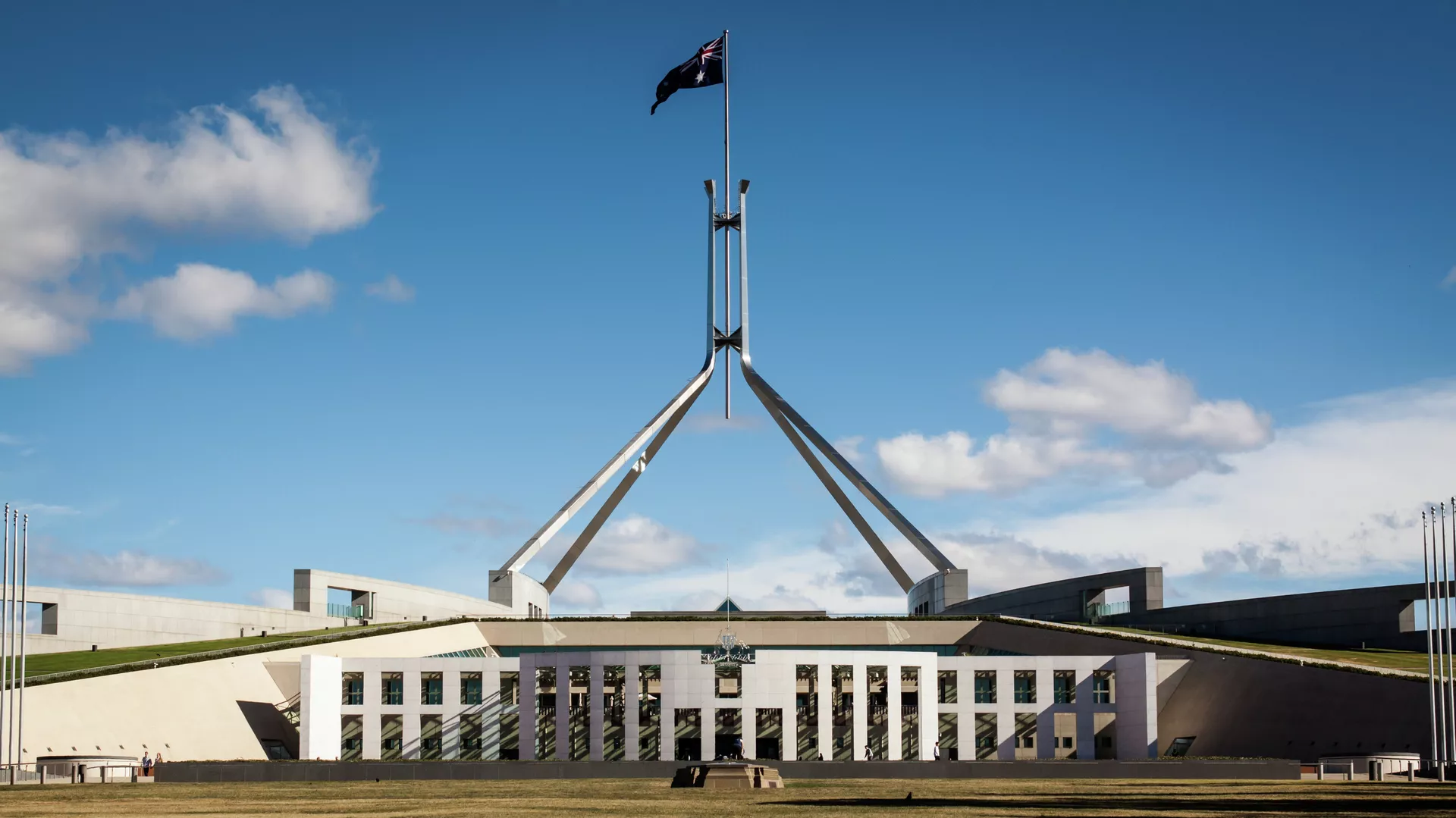https://sputnikglobe.com/20221122/australian-parliament-ratifies-ftas-with-india--uk-1104526889.html
Australian Parliament Ratifies FTAs With India & UK
Australian Parliament Ratifies FTAs With India & UK
Sputnik International
Last week, Australian Trade Minister called “diversification” away from China as “central plank” of the new strategy. However, in spite of a range of... 22.11.2022, Sputnik International
2022-11-22T10:12+0000
2022-11-22T10:12+0000
2023-05-28T15:25+0000
india
australia
china
anthony albanese
g20
fta
united kingdom (uk)
https://cdn1.img.sputnikglobe.com/img/101626/02/1016260278_0:0:4711:2650_1920x0_80_0_0_a70ae8d417289f7765cbbf1c33e9b706.jpg.webp
The Australian Parliament has ratified free trade agreements (FTAs) with India and the United Kingdom (UK), Prime Minister Anthony Albanese announced on Tuesday, a day after they were passed in the House of Representatives.The trade pacts will have to be approved by the Indian and British parliaments before they come into force.Both the agreements were signed under the previous Australian government of Scott Morrison.The FTA with the UK, which was signed last December, will provide duty-free access to the UK market to 99 percent of Australian exports, which include beef, dairy products, wine and mutton.India ‘Critical’ of Australia’s Trade Diversification StrategyAustralian Trade Minister Don Farrell has said that early implementation of the trade pact with India is “critical” to Canberra’s “trade diversification strategy,” as it looks to reduce its reliance on trade with Beijing.New Delhi and Canberra have said that the ECTA will “almost double” bilateral trade between the two nations from $27.5 billion in 2021 to $45-50 billion in the next five years.The ratification of the trade pacts with India and the UK come against the backdrop of Canberra’s ongoing concerns over restrictions on Australian exports by China. Beijing earlier imposed sanctions against Australian exports, including wine, barley, lobster, beef, coal, cotton and timber, over a range of issues. A call by former Australian Prime Minister Scott Morrison in 2020 to investigate the origins of COVID-19 pandemic didn’t go down well with Beijing, which has also been critical of Canberra’s membership of the US-led AUKUS alliance launched last September.During a meeting with Chinese President Xi Jinping on the sidelines of the G20 Summit in Bali last week, Prime Minister Albanese called for lifting of the trade sanctions and said that they weren’t justified.
australia
china
united kingdom (uk)
Sputnik International
feedback@sputniknews.com
+74956456601
MIA „Rossiya Segodnya“
2022
News
en_EN
Sputnik International
feedback@sputniknews.com
+74956456601
MIA „Rossiya Segodnya“
Sputnik International
feedback@sputniknews.com
+74956456601
MIA „Rossiya Segodnya“
australia news, australia fta, australia india fta, australia china fta, australia uk fta, trade diversification strategy, india australia trade relations
australia news, australia fta, australia india fta, australia china fta, australia uk fta, trade diversification strategy, india australia trade relations
Australian Parliament Ratifies FTAs With India & UK
10:12 GMT 22.11.2022 (Updated: 15:25 GMT 28.05.2023) Last week, Australian Trade Minister called “diversification” away from China as “central plank” of the new strategy. However, in spite of a range of differences in the bilateral relationship, China continues to remain Australia’s biggest trading partner.
The Australian Parliament has ratified free trade agreements (FTAs) with India and the United Kingdom (UK), Prime Minister Anthony Albanese announced on Tuesday, a day after they were passed in the House of Representatives.
The trade pacts will have to be approved by the Indian and British parliaments before they come into force.
Both the agreements were signed under the previous Australian government of Scott Morrison.
The Australian government said that the trade deal with India, signed in April, would see New Delhi eliminating tariffs on 90 percent of Australian exports, which include sheep meat, wool, cotton, sea food and wine. India, on the other hand, will be provided preferential market access to Australia on trade in labor-intensive sectors such as textiles, leather, furniture, engineering products, medical devices and automobiles.
The FTA with the UK, which was signed last December, will provide duty-free access to the UK market to 99 percent of Australian exports, which include beef, dairy products, wine and mutton.
India ‘Critical’ of Australia’s Trade Diversification Strategy
Australian Trade Minister Don Farrell has said that early implementation of the trade pact with India is “critical” to Canberra’s “trade diversification strategy,” as it looks to reduce its reliance on trade with Beijing.
Farrell said that the Indian market presents “unparalleled growth opportunities” for Australian businesses in sectors such as food and agriculture, technology, green health and education services.
New Delhi and Canberra have said that the ECTA will “almost double” bilateral trade between the two nations from $27.5 billion in 2021 to $45-50 billion in the next five years.
The ratification of the trade pacts with India and the UK come against the backdrop of Canberra’s ongoing concerns over restrictions on Australian exports by China. Beijing earlier imposed sanctions against Australian exports, including wine, barley, lobster, beef, coal, cotton and timber, over a range of issues.
A call by former Australian Prime Minister Scott Morrison in 2020 to investigate the origins of COVID-19 pandemic didn’t go down well with Beijing, which has also been critical of Canberra’s membership of the US-led AUKUS alliance
launched last September.
During a meeting with Chinese President Xi Jinping on the sidelines of the G20 Summit in Bali last week, Prime Minister Albanese called for lifting of the trade sanctions and said that they weren’t justified.

